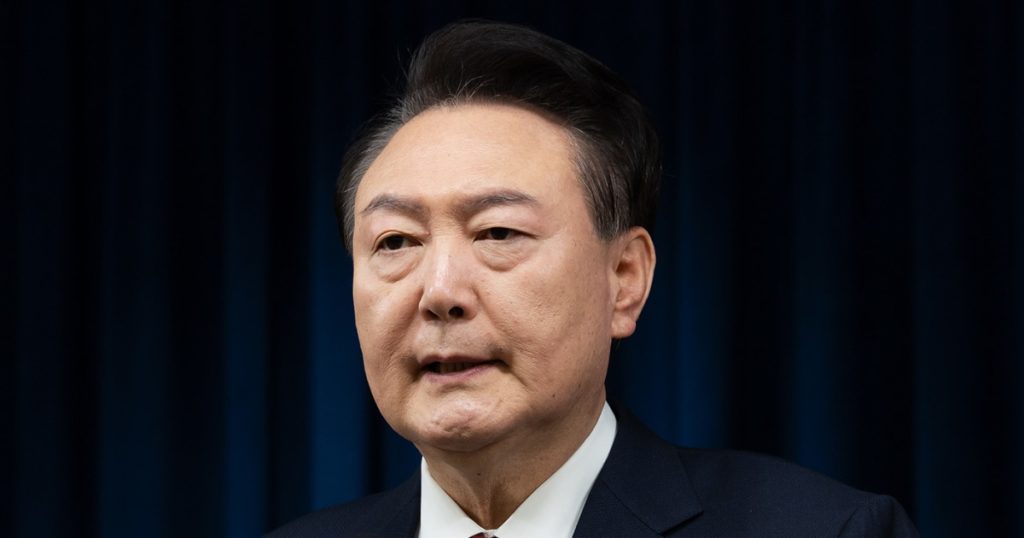South Korean authorities attempted to execute an arrest warrant for President Yoon Suk Yeol due to his failed attempt to declare martial law. However, they faced difficulties as they were blocked by Yoon’s security detail and had to suspend the execution of the warrant due to safety concerns. The warrant, seeking to detain Yoon for questioning on possible charges of insurrection, does not expire until Monday, and officials may try to execute it again. Thousands of police officers arrived at Yoon’s residence, encountering his conservative supporters who formed a “human shield” to protect him from arrest.
Yoon, who was impeached on December 14, would be the first sitting South Korean president to be arrested if the warrant is executed. He has been suspended from presidential duties pending a Constitutional Court trial to determine the validity of his impeachment. Yoon’s lawyers have challenged the warrant, claiming it is illegal, and have vowed to take legal action against any unlawful circumstances arising during its execution. Despite apologizing for the martial law declaration, Yoon has defied summonses for questioning, maintaining that his actions were justifiable as president.
Yoon has criticized “anti-state forces” for paralyzing the government and has accused the opposition of sympathizing with communist North Korea. His short-lived declaration of martial law, which included a ban on political activity, was rejected by lawmakers. Yoon has seen a decline in approval ratings following the incident. Despite this, he still has support from some conservative followers who view him as more aligned with the U.S. alliance than the liberal Democratic Party. Yoon’s messages to protesters have been deemed inappropriate by the Democratic Party, which views them as incitement to conflict and chaos.
The crisis surrounding Yoon has attracted attention beyond South Korea, with state media in North Korea commenting on the situation. The Constitutional Court has 180 days to decide Yoon’s impeachment, with a presidential by-election required within 60 days if he is removed from office. Various acting presidents have assumed the role in the meantime, including Prime Minister Han Duck-soo and Choi Sang-mok. Choi became acting president shortly before a tragic aviation disaster occurred in the country.
The standoff concerning President Yoon Suk Yeol between authorities and his supporters has increased tensions in South Korea, raising concerns about the country’s stability and democracy. The ongoing legal battle surrounding Yoon’s impeachment and potential arrest has highlighted the complexities of political power struggles in the nation. As the situation continues to unfold, it remains to be seen how it will impact the political landscape in South Korea and its standing in the international community.












